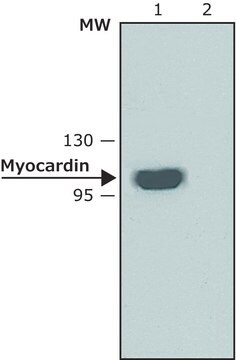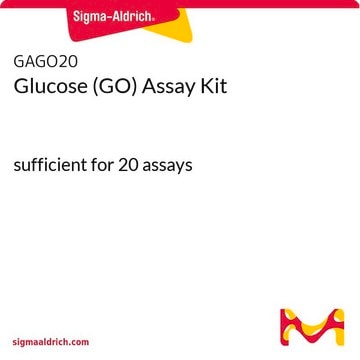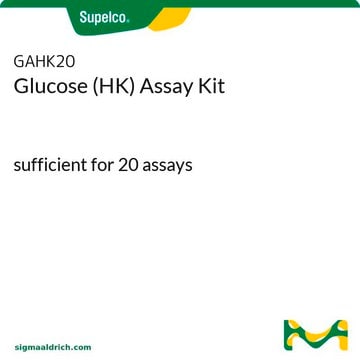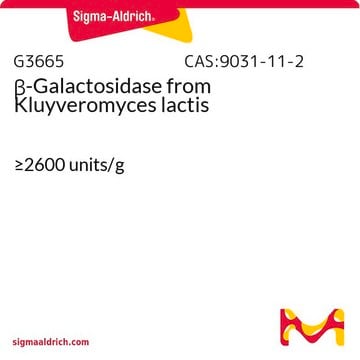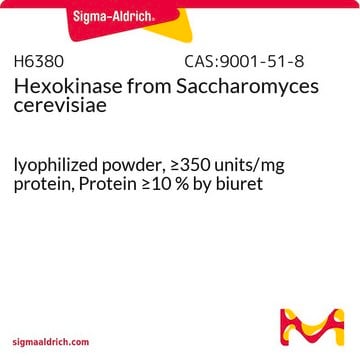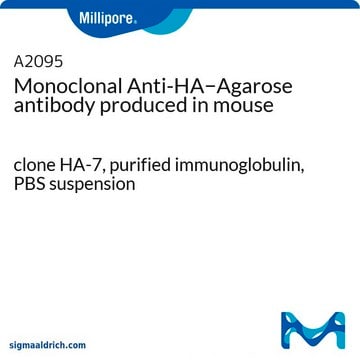M8948
Monoclonal Anti-Myocardin antibody produced in mouse
~2.0 mg/mL, clone MCR54, purified immunoglobulin
Synonym(s):
Anti-MYCD, Anti-MYOCD
About This Item
Recommended Products
biological source
mouse
Quality Level
conjugate
unconjugated
antibody form
purified immunoglobulin
antibody product type
primary antibodies
clone
MCR54, monoclonal
form
buffered aqueous solution
mol wt
antigen ~150 kDa
species reactivity
human
packaging
antibody small pack of 25 μL
concentration
~2.0 mg/mL
technique(s)
western blot: 2.5-5 μg/mL using HEK-293T cells overexpressing myocardin
isotype
IgG2b
UniProt accession no.
shipped in
dry ice
storage temp.
−20°C
target post-translational modification
unmodified
Gene Information
human ... MYOCD(93649)
General description
Application
Biochem/physiol Actions
Physical form
Disclaimer
Not finding the right product?
Try our Product Selector Tool.
Storage Class
12 - Non Combustible Liquids
wgk_germany
WGK 2
Choose from one of the most recent versions:
Certificates of Analysis (COA)
Don't see the Right Version?
If you require a particular version, you can look up a specific certificate by the Lot or Batch number.
Already Own This Product?
Find documentation for the products that you have recently purchased in the Document Library.
Our team of scientists has experience in all areas of research including Life Science, Material Science, Chemical Synthesis, Chromatography, Analytical and many others.
Contact Technical Service